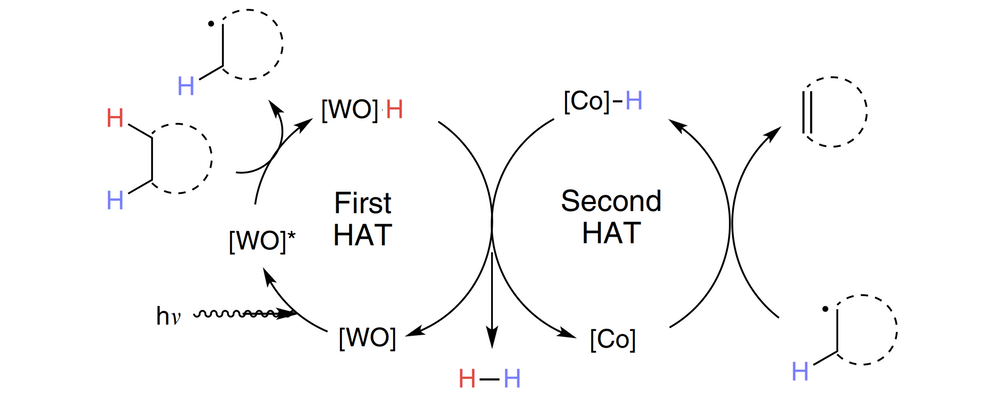Acceptorless dehydrogenation of small molecules through cooperative base metal catalysis
Julian G. West, David Huang and Erik J. Sorensen
Nature Comms.,
2015, 6, 10093; 10.1038/ncomms10093

12/2015
Alkenes have long been recognized as powerful footholds in the synthesis of complex organic frameworks, making methods for their introduction impactful across organic synthesis.
This explorative study from the Sorensen group discloses a catalytic and effective method for introducing unsaturation into alkanes in a flexible and controlled fashion.
Dehydrogenation of saturated alkyl motifs is known has been previously reported in the organometallic literature, but in general require harsh reaction conditions, terminal oxidants and the employ of noble-metal catalysts. Inspired by the literature surrounding enzymatic approaches to this transformation that are efficient at physiological temperatures a cooperative dual catalyst system was envisioned.
This study describes the design processes behind the discovery and optimization of a light driven cooperative hydrogen atom transfer (cHAT) transformation that can effectively dehydrogenate alkanes and alcohols to alkenes and ketones respectively with the evolution of hydrogen gas employing readily available and sustainable catalysts.
This transformation has significant implications in the design of synthetic strategies.